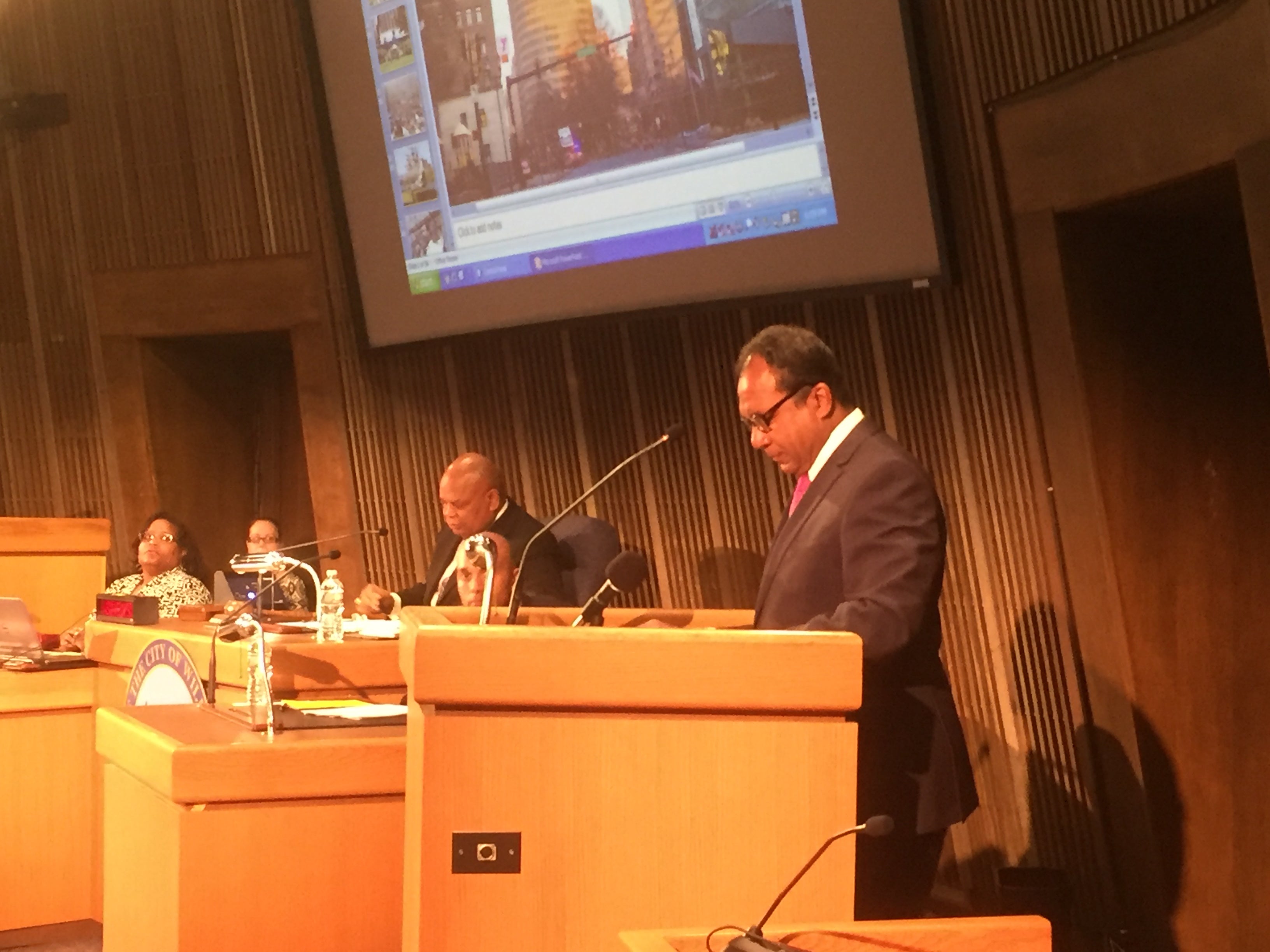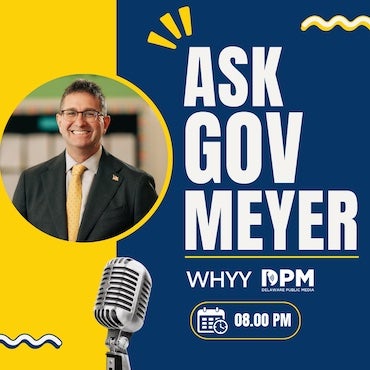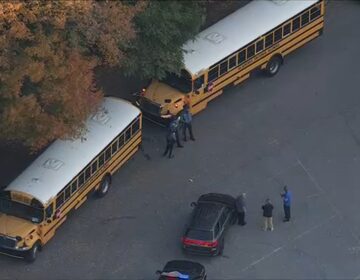Wilmington mayor goes off script to give state of the city address and budget message

Mayor Dennis Williams
Mayor Dennis Williams, D-Wilmington, didn’t need a prepared text to deliver his State of the City speech and release a proposed fiscal year 2017 budget.
During what was touted as a budget and State of the City address Thursday night, Wilmington Mayor Dennis Williams ventured off his prepared 10-page speech to discuss his achievements and Wilmington’s progress since taking office four years ago.
What he didn’t say during his live remarks is the Williams administrations proposes a fiscal year 2017 budget of $227.9 million and a general operating budget of $154.6 million—a 1.9 percent increase over the current year.
However, he focused his speech on how he believes Wilmington has made strides in areas like public safety, opportunities for youth and the economy.
“We started all of these efforts together, and we can’t stop now,” Williams said.
He devoted much of his speech to public safety, which he said should be the city’s top priority.
Williams noted the creation of the homicide unit, which he said cleared 50 percent of homicide cases. He also cited the importance of hiring former Philadelphia Police Commissioner Charles Ramsey to lead public safety efforts in Wilmington, which will largely focus on community policing.
“We’re going to do everything we can do build relationships in the community, and I do believe we’ve disciplined more police officers for disrespecting civilians in the history of city,” Williams said.
His proposed budget includes a total of $56.8 million for police and $25 million for the fire department.
“Public safety is very critical—if you don’t have strong public safety, police and fire your city is in turmoil,” Williams said after the speech. “When people feel not safe with your fire department and police department that’s when you have people wanting to sell houses, they want to move, because they don’t feel comfortable.”
Several times during the speech Williams prompted those in attendance in council chambers to applaud his actions. “And you can applaud for that,” he would prompt the crowd.
At the very end of his speech the mayor promised that he expected a fair settlement to be reached with the Wilmington fire fighters union. “We’re going to git ‘er done,” Williams said.
During his speech Williams talked about the importance of providing opportunities for children so they can have successful futures. He mentioned the Department of Parks and Recreation’s Summer Youth Employment program, which provides kids work experiences and education on job readiness, customer service, financial literacy and conflict resolution. The proposed budget includes a total of $10.9 million to the department.
Williams said he wants to focus on creating more programs for at-risk children.
“If a kid gets in trouble and becomes a felon, if you keep burying that kid and never give them an opportunity and they go back to the same surroundings they came from, 90 percent of the time they will go back to where they were before, and if had to pull that kid in and give them an opportunity it would turn out totally different,” he said after the speech.
Some Council members felt Williams’ speech skimmed over important issues that need to be worked on.
“There wasn’t a lot of substance,” Councilman Nnamdi Chukwuocha said. “It was more, ‘Look at what I’ve done,’ instead of, ‘Look at the challenges our city is facing and here’s my proposed strategy for some of those challenges.’”
Williams’ proposed budget doesn’t include any increase in the property tax, or the city’s water, sewer and storm water rates. He said it was important not to overtax his constituents.
“If you keep gouging folks that’s when you’re going to lose business, you’re going to lose residents,” Williams said. “I’m a democrat, but I’m very cautious on raising taxes.”
However, he said he’s concerned about the increased cost in healthcare. The Health and Welfare fund budget increased by $5.16 million—38.7 percent. To offset the effect on the operating budget, $2 million in fund balance was transferred form the Risk Management fund to the Health and Welfare fund.
“Any mayor that comes in here with any sense knows we can’t spend on healthcare like we’ve been spending for the past 20 years,” Williams said. “We won’t be able to sustain it, we just can’t.”
Councilman Bud Freel said he’s concerned about the transfer.
“My feeling is we’re kicking the can down the road to get through this year, so I’m a little concerned how we’re approaching this budget,” he said.
Freel said he’s also concerned about spending—including a rise in overtime costs, which increased by $681,000.
“As you look as a budget they’re showing a surplus of $200,000, which means you have to keep a tight rein on your costs,” he said. “We’ve seen year after year overtime costs have been very high and if we don’t keep that under control we’re going to see a large deficit at the end of the year.”
Councilman Robert Williams said he believes cutting vacant positions would be an appropriate step to saving money.
“We don’t want to raise taxes, but we have to cut our expenses and there are some vacant positions that have been vacant for many years and to me that’s the quickest and easiest way to get rid of it,” he said.
Next week City Council will begin discussion on the budget and make recommendations before making a vote. The approved budget will begin July of this year.
“I’ve always said there are three major functions the city has to do—pick up trash, put out fires and lock up the bad guys—everything else is secondary,” Councilman Robert Williams said.
“So as long as we can make sure those services are met and met to fullest extent all the other things are secondary and we’ll go through budgetary process and make the cuts we need to make.”
WHYY is your source for fact-based, in-depth journalism and information. As a nonprofit organization, we rely on financial support from readers like you. Please give today.





